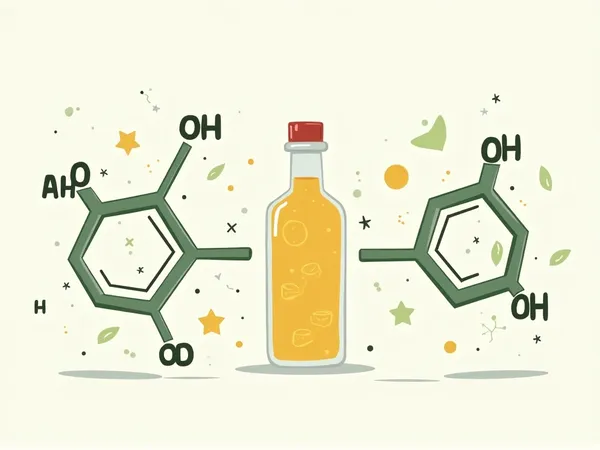
Ready to Start Your Wellness Journey?
Become a Herbalife Preferred Member and enjoy exclusive discounts of up to 25% on all products.
BECOME A PREFERRED MEMBERPhenylalanine: Essential Amino Acid for Brain Health
Introduction
Phenylalanine is an essential amino acid that plays a fundamental role in human health. As a building block of proteins, it contributes to growth, tissue repair, and the production of neurotransmitters that help regulate mood and cognitive function. Because the body cannot synthesize phenylalanine, it must be obtained through diet. This article explores the importance of phenylalanine, its functions in the body, consequences of deficiency, and practical ways to ensure adequate intake.
Role in the Body
Phenylalanine serves as a precursor for several key biological processes. It is converted into tyrosine, which is used to synthesize neurotransmitters, hormones, and pigments. Through these pathways, phenylalanine supports neurological function, hormonal balance, and protein synthesis.
Specific Functions
1. Neurotransmitter Production: Phenylalanine is hydroxylated to tyrosine, which then forms dopamine, norepinephrine, and epinephrine—compounds involved in mood, alertness, and stress response.
2. Protein Synthesis: Incorporated into proteins that form muscle, skin, enzymes, and antibodies, phenylalanine supports growth and immune function.
3. Hormone Precursor: Tyrosine-derived thyroid hormones (thyroxine and triiodothyronine) are critical for metabolic rate regulation, growth, and development.
4. Pigment Formation: Tyrosine contributes to melanin production, the pigment responsible for skin, hair, and eye color.
Effects of Deficiency
Inadequate phenylalanine intake can impair protein synthesis and neurotransmitter production. Possible effects include:
- Reduced Growth: In children, low intake may impair growth and development.
- Mood and Cognitive Effects: Lower production of catecholamine neurotransmitters may contribute to fatigue, low mood, or reduced alertness.
- Hormonal Imbalance: Insufficient tyrosine synthesis can affect thyroid hormone levels, potentially leading to fatigue and cold intolerance.
- Weakened Immunity: Protein deficiency may impair immune function and wound healing.
Dietary Sources
Phenylalanine must be supplied by dietary protein. High-protein foods are the primary sources.
Best Food Sources
- Lean Poultry (chicken, turkey): Approximately 2,000 mg per 3-ounce cooked portion
- Fish (salmon, tuna): Around 1,700 mg per 3-ounce cooked portion
- Beef and Lamb: Roughly 1,600 mg per 3-ounce cooked portion
- Eggs: About 460 mg per large egg
- Dairy (milk, yogurt, cheese): 500–800 mg per cup of milk or yogurt; 800 mg per ounce of cheese
- Soy Products (tofu, tempeh, edamame): 1,300–1,900 mg per cup
- Legumes (lentils, chickpeas, black beans): 600–1,200 mg per cooked cup
- Nuts and Seeds (almonds, pumpkin seeds, peanuts): 300–500 mg per ounce
- Whole Grains (oats, quinoa, brown rice): 200–400 mg per cooked cup
- Spirulina (dried powder): Approximately 1,000 mg per tablespoon
Supplementation
Most individuals meet phenylalanine needs through diet. Supplementation may be considered when dietary intake is insufficient or requirements are increased:
- Restricted Diets: Vegetarians or vegans with limited protein variety may require supplements.
- Higher Demands: Athletes or individuals in recovery may consider supplementation under professional guidance.
- Medical Conditions: Those with absorption issues or specific metabolic disorders should consult a healthcare professional before supplementing.
Available forms include L-phenylalanine (the natural isomer) and D,L-phenylalanine (DLPA). L-phenylalanine is directly used in protein synthesis and neurotransmitter pathways.
Health Benefits
Phenylalanine is essential for neurotransmitter synthesis and protein formation. Adequate intake supports normal physiological functions. Research into additional benefits—such as mood regulation and cognitive performance—continues, but established roles relate primarily to its function as an amino acid precursor.
Daily Requirements
International guidelines provide the following recommended intakes:
- Infants (0–6 months): 51 mg per kg of body weight per day
- Children (1–3 years): 25 mg per kg per day
- Children (4–6 years): 18 mg per kg per day
- Adolescents (10–18 years): 14–16 mg per kg per day
- Adults: 14 mg per kg per day
- Pregnant or Lactating Women: 10%–20% above adult requirements
For a 70-kg adult, this equates to approximately 980 mg per day. Individuals with higher protein turnover may require modestly higher intakes.
Tips for Incorporation
Practical strategies to ensure adequate phenylalanine intake include:
- Combine Proteins: Mix animal and plant proteins (e.g., chicken with beans) to diversify amino acid profiles.
- Smart Snacking: Choose nuts, seeds, or dairy-based snacks.
- Breakfast Boost: Add spirulina, soy milk, or Greek yogurt to morning meals.
- Meatless Options: Use tofu, tempeh, or legumes in place of meat.
- Dairy Inclusions: Incorporate low-fat cheese or cottage cheese into salads and wraps.
- Batch Cooking: Prepare grains and legumes in bulk for easy use during the week.
- Professional Guidance: Consult a registered dietitian for personalized supplementation advice if needed.
Conclusion
Phenylalanine is a vital component of protein synthesis and a precursor for key neurotransmitters and hormones. Ensuring adequate phenylalanine intake through a balanced diet helps maintain normal metabolic and neurological functions. Those with specific dietary restrictions or increased needs should seek guidance from healthcare professionals.
“Focus on protein diversity and quality to support essential amino acid balance in your diet.”
By selecting a variety of protein-rich foods and planning meals thoughtfully, you can meet your phenylalanine requirements and support overall health.
Call to Action: Review your dietary protein sources today, plan balanced meals, and consult a qualified professional if you have questions about your phenylalanine intake.
Disclaimer: This article is for informational purposes only and does not constitute medical advice. Always consult a healthcare professional before making significant dietary changes or beginning supplementation.
Ready to Start Your Wellness Journey?
Become a Herbalife Preferred Member and enjoy exclusive discounts of up to 25% on all products.
BECOME A PREFERRED MEMBER